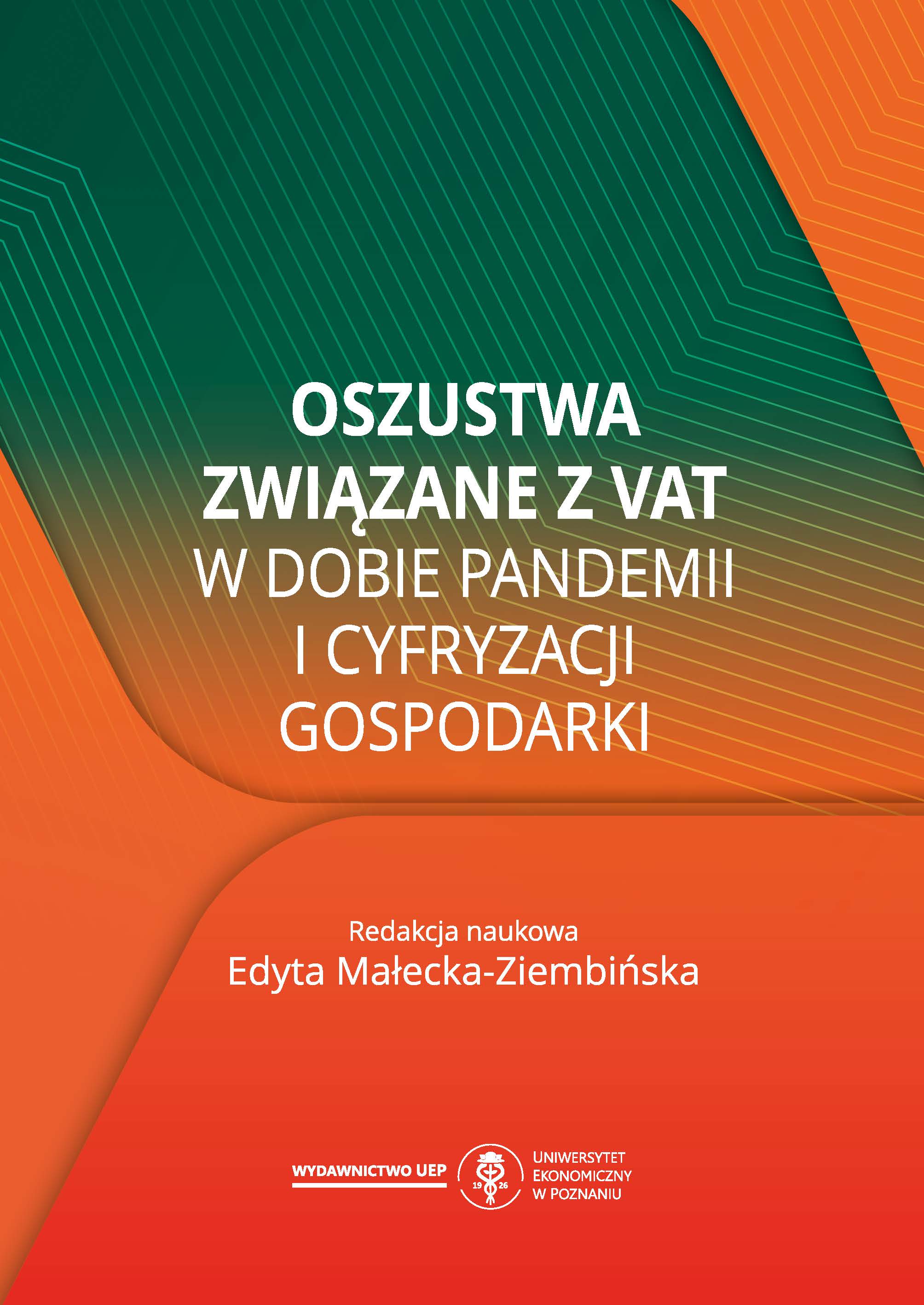Wykroczenia i przestępstwa związane z VAT – ujęcie normatywne
Crimes and offenses in VAT – normative approach
Author(s): Magdalena Stępniak
Subject(s): Economy, Law, Constitution, Jurisprudence, Criminal Law, Law on Economics, EU-Approach / EU-Accession / EU-Development, Public Finances, Fiscal Politics / Budgeting, ICT Information and Communications Technologies, Business Ethics, EU-Legislation, Administrative Law
Published by: Wydawnictwo Uniwersytetu Ekonomicznego w Poznaniu
Keywords: przestępczość zorganizowana;oszustwa podatkowe;przestępstwa VAT;prawo karne;
Summary/Abstract: Purpose: The purpose of this research is to describe and elucidate the legal provisions related to Value Added Tax (VAT) crimes. Simultaneously, this study aims to delve deep into the realm of tax-related crimes, illuminating the different forms, their implications, and the impacts they bear. A critical component of this chapter will be devoted to the liability of the perpetrators in such crimes and the legal repercussions. By undertaking this, this chapter seeks to provide an understanding of VAT’s legal landscape, the challenges posed by tax crimes, and the mechanisms in place to ensure accountability and justice. Design/methodology/approach: In this chapter several approaches will be integrated. First, the dogmatic and legal analysis will be employed. This involves an examination of legal texts and statutes to derive established legal norms and principles. It ensures that this chapter remains rooted in the foundational legal doctrines and interpretations. Second, the theoretical and legal method will be used to provide an analytical framework. Through this method it is possible to insight theoretical underpinnings of the legal provisions in question. Findings: Several findings have emerged in this chapter. There is a detailed delineation within Polish criminal regulations that pertains to offenses and Value Added Tax crimes. This distinction allows for a better understanding of illegal activity of the criminals, starting from straight forward VAT omissions, to more serious crimes that may directly or indirectly pertain to VAT. Additionally, Polish fiscal regulations came to the fore. Their structure not only defines tax obligations but also emphasizes the importance and repercussions of non-adherence. What is more, the research brought into sharp focus the mechanisms by which liability is determined in the context of VAT-related crimes. Polish legal stipulations make anuanced distinction when determining accountability, especially concerning petty crimes versus more serious tax crimes. This distinction ensures that punishments for criminals committing VAT-crimes are not only meted out but are also proportionate to the nature and severity of the offense.
Book: Oszustwa związane z VAT w dobie pandemii i cyfryzacji gospodarki
- Page Range: 95-118
- Page Count: 24
- Publication Year: 2023
- Language: Polish
- Content File-PDF

